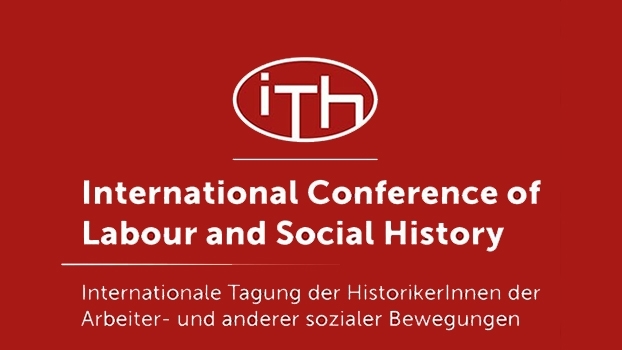
The fifty-eighth ITH Conference is organized by the International Conference of Labour and Social History (ITH), and kindly supported by the Chamber of Labour of Upper Austria, the Chamber of Labour of Vienna, the Austrian Society for Political Education, the Friedrich Ebert Foundation, the Rosa Luxemburg Foundation, and the City of Linz.
The conference takes place on-site in Linz, Austria. We offer the possibility to join the
conference online for participants who cannot travel to Linz for specific reasons.
Preparatory Group
Ravi Ahuja (Centre for Modern Indian Studies, University of Göttingen), Eszter Bartha (Eötvös
Loránd University, Hungary), Stefan Berger (Ruhr University, Bochum), Laurin Blecha (ITH,
Vienna), David Mayer (ITH, Vienna), Therese Garstenauer (ITH, Vienna), Paulo Fontes
(Universidade Federal do Rio de Janeiro)
Objectives
Industrialization and deindustrialization have been global and combined phenomena ever since the Industrial Revolution. The wave of industrialization associated with England in the late eighteenth and early nineteenth centuries formed but one element of a dramatic global restructuring of production which came with the loss and transformation of livelihoods in other parts of the world. India is emblematic for that, as the surge in machine-driven industrialization in England went hand in hand with the decline if not dismantling of the more craft-based textile industries in India. Since then, we have witnessed many waves of deindustrialization, reindustrialization and economic transition around the world. These interconnected processes have been accompanied by often dramatic changes in employment opportunities and the world of work more generally.
This conference seeks to explore processes that are often described as ‘deindustrialization’ from a global and historical perspective. It starts from the assumption that the term itself is problematic, as the economic processes leading to deindustrialization at the same time might include processes of reindustrialization. The term itself is also not used widely in different languages: in German Strukturwandel is preferred, in Italian there ristruccturazione and in French we often hear about modernisation. The ambivalence of terminology points at the diversity of processes of industrial restructuring: they may be due to shifts of profit expectations between industrial sectors, changing modalities of international capital movements or to the transformation of labour processes and management strategies within a specific industrial sector. Each of these interconnected processes of crisis resolution can result in various forms of spatial relocation, and re-composition of the labour force.
Hence, we are asking how best to understand the processes of economic and spatial transition, their social and cultural consequences as well as their political fall-outs. We are interested in resistance to economic transitioning processes where industrial capital is leaving one place and moving to another. We would like to receive paper proposals that seek to recuperate the voices of those most affected by economic transitions, including workers and their communities, adjacent social strata directly affected by industrial restructuring, labour movements and urban as well as rural social movements. Furthermore, we are keen to learn about how these transitions might have changed traditional gender orders and how they might have opened up new ethnic divisions. Finally, we wish to pay special attention to how the memory of an industrial past and of specific trajectories of deindustrialization have influenced the postindustrial orders that have been emerging in many of the formerly industrial regions. Memory has been a powerful political resource and the construction of industrial heritage has not just been the nostalgic backdrop to a vibrant tourist industry but also the backbone of resistance towards an undermining of ways of life and of solidaristic collective cultures that characterized industrial societies. Memory has also traveled between old and new sites of de/industrialization, and can function as a resource informing endeavors to build new solidarities and community-building.
Processes of deindustrialization and reindustrialization need to be embedded in wider problems of capitalist development and the tensions between global markets and local conditions. If “capital moves” (Jefferson Cowie), it might fix problems for capitalist development but it also causes problems for those attached to specific localities. Furthermore, processes of industrialization have often caused massive environmental problems, which are left to postindustrial futures once the industries have gone. Papers dealing with questions of political ecology and energy transition will therefore also be welcome.
The conference will attempt to shed light on processes of deindustrialization in a global framework paying attention to dramatic forms of deindustrialization and industrial restructuring in the global South as well as the global North including Eastern Europe. The history of developmentalist politics and their failure raises questions about the interrelatedness of developments in the global North and the global South. Focusing on localities and regions where industrial capital has left and/or has relocated to, the conference wishes to explore the spatial re-organization of capitalism and its conferences in regions and countries around the world. Transregional and comparative studies will be especially welcome.
Undoubtedly, so far, studies of deindustrialization have tended to focus on the global North. The conference wishes to develop a de-centered global perspective by bringing in the global South and the interrelatedness of both spatial spheres. It also seeks to draw attention to less well-studied regions/sites affected by deindustrialization around the world. Finally, being aware that deindustrialization processes arguably go back a long way, this conference will be open to papers on the early modern period as well.
Deindustrialization studies has been strongly transdisciplinary and the conference would invite contributions not just from historians but from a range of different disciplines, including the social sciences, geography, anthropology, memory studies, social movement studies and others who have engaged with the types of economic transitions discussed above.
More information and registration here.
Location
Contact
Bernd Hüttner
Senior Advisor for Contemporary History and Politics of Remembrance
Email: bernd.huettner@rosalux.org
Phone: +49 173 6096101